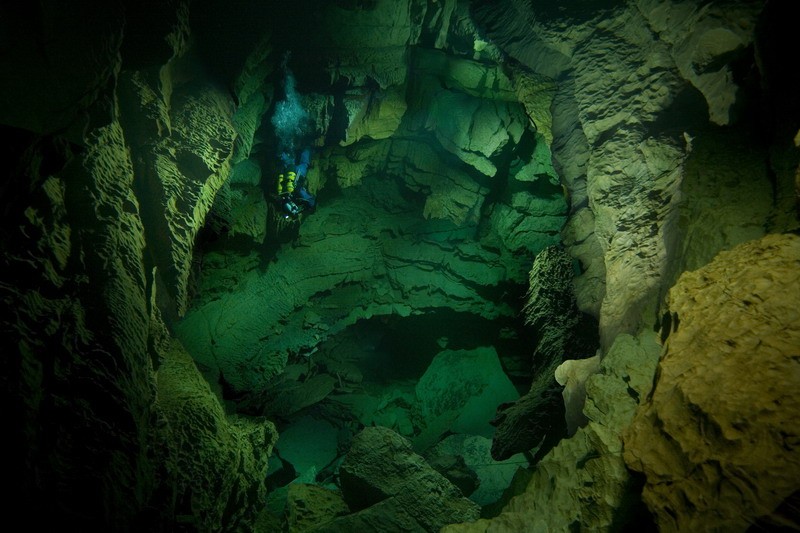The video: I don't want to sound didactic or reiterate the basics, and it was difficult to judge how deep exactly divers moved into the cave, but it looked quite imprudent - with a single cylinder, with no reel and no backup lights into a cave, passing the grim reaper sign, octopus dangling over rocks and cracks. If this is done with an OWD cert, it's neither wise nor advisable at all.
I felt the same way. Even if this diver did not pass the warning sign, ..this was an accident waiting to happen.
...The second thing is that Paradise Springs is an Open Water dive as long as you don't go past the Grim Reaper.
Um... No it's not an "open water dive". The property owners do allow open water divers dive here and It seems inconsistent as to if/when they allow divers to carry lights. For example: My AOW divers dove there back in Feb'16 and were told not to use lights. I dove there with a small group and (including OW divers) and no mention of a light restriction was mentioned.
More to the point: This in NOT an open water dive, unless you stay within about 10" radial feet of the deck/ladder. It IS a very nice "Cavern" dive, where much of the area can be explored within sight of the surface. I think this is where people get mixed up. Under most agencies I am familiar with; your primary light source in a "Cavern" dive should be the Sun/Surface light. If you are unable to see well enough to exit without a dive light, you are really past the "Cavern" zone and into the "Cave" zone.
At the Warning sign in Paradise Springs; you are at ~95' in depth and over 75' away from the surface at roughly a 45* angle. Yes, you can see surface light from there. Depending on water viz, it might look about the size of a small orange. It would not take much for another diver so silt out the cavern and really shut off that light source.
I personally would not dive that cave with less than 3 reliable lights. I chose not to dive past the sign with the group I was with. Its small and doesn't even go that far anyway. Plus there is plenty to see in the larger cavern area.
My last dive here was in a single tank configuration, rigged to cavern/cave trim. It is my opinion that even if you don't pass the "sign" it's a Cavern+ dive. I will dive this again, but will be in full cave trim with fully redundant regulators and powerful primary light. ..Probably double tanks too. Some might think this is overkill, but with depths in the 100' range and plenty to explore, why not get the most for your $30 entry fee, plus gain some experience in a longer dive profile.
What other divers do is beyond my control and I'd hope that the smart divers will see the many mistakes made by these divers and not follow their lead.
That said I hope you enjoyed learning about a dive location that
can be done with just an open water cert.
As a pilot and Army veteran I too find it hard to watch movies or videos about flying or the military without critiquing the multitude of mistakes made, but I try to enjoy it as much as possible and remember that if I want it done right I should do it myself.[/QUOTE]





